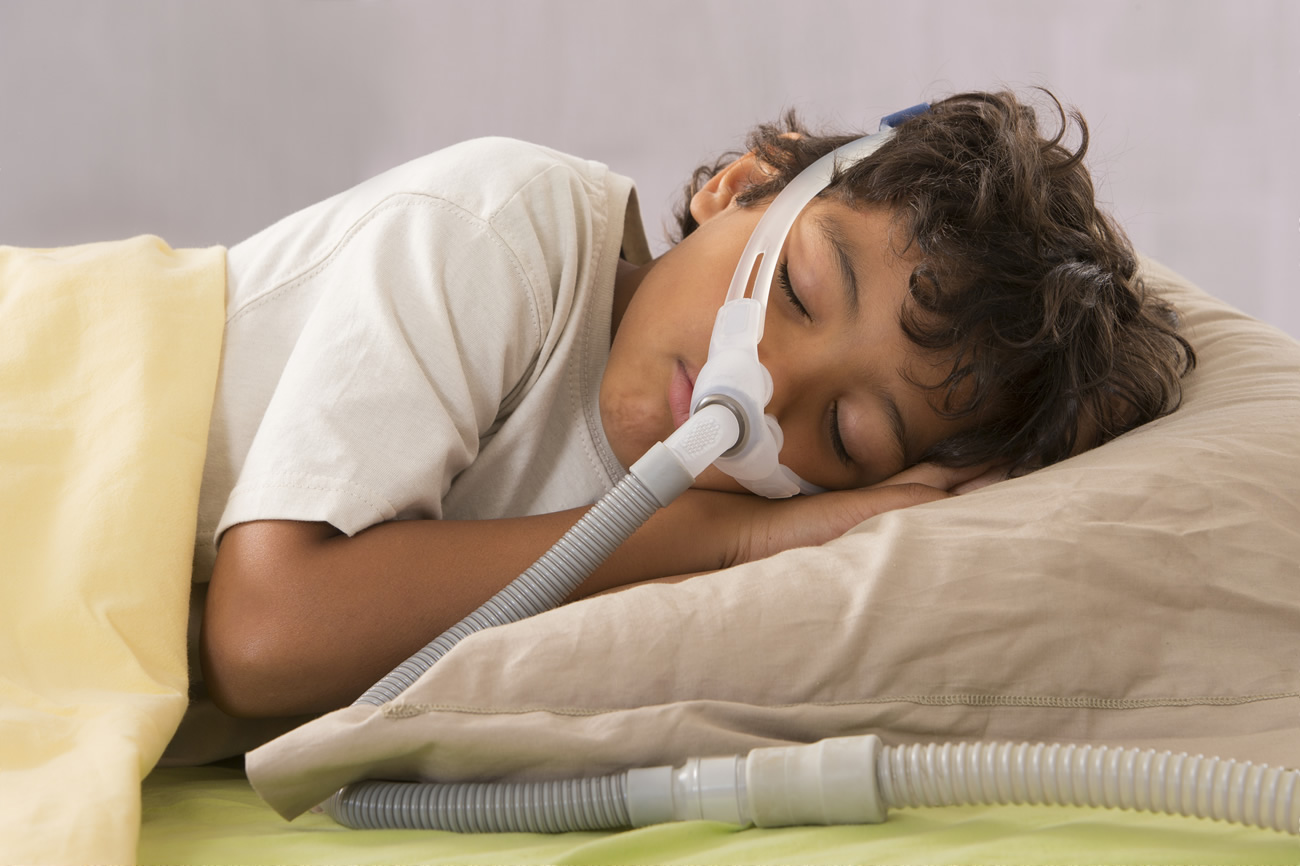
- 0203 903 7866
The Portland Hospital for Women and Children,
205-209 Great Portland Street, London W1W 5AH - Request Appointment
 GP Referral
GP Referral

Sleep apnoea affects your child's breathing when he or she is asleep. You might notice that your child occasionally seems to struggle or gasp for breath at night. There may even be a noticeable pause in their breathing. You might notice noisy mouth breathing, hear snorting or gasping sounds, or periods of loud snoring with gasps. Your child might stir or wake up during these episodes, but they may not be aware that they have woken when they get up the next day.
The effects of sleep apnoea can go beyond the breathing symptoms. The interrupted sleep that comes about as your child keeps waking when their breathing is interrupted can leave them feeling tired and irritable. It can have a big impact on their concentration and schoolwork. It can also be very upsetting and disruptive for you and the rest of the family. You might actually notice these kinds of issues first before you spot any breathing problems. In some cases, sleep apnoea will be diagnosed because parents have sought help over a sleep problem or symptoms of hyperactivity, without realising that it could be sleep apnoea. Left untreated, severe sleep apnoea can lead to serious health problems in children of all ages.

Sleep apnoea happens when the throat relaxes so much during sleep that the walls collapse, making your child's airway narrower than usual. Everyone's throat relaxes a little while they are sleeping, but in sleep apnoea the airway can be partially or completely blocked. The blockage will usually last for ten seconds or more, and it can happen many times throughout the night. In some cases, the throat can be blocked every few minutes, but in others it may only happen a few times a night. Sleep apnoea in children can happen for a range of different reasons, but commonly it is caused by large adenoids and tonsils. Sleep apnoea also runs in families, while in other cases it is due to an unusually narrow airway, or a structural problem such as a deviated nasal septum. Sleep apnoea can happen intermittently and is always worse when your child has a cold or a blocked nose for example, from hay fever or other allergies. Sleep apnoea affects can affect any child but is more common and severe in children with Down syndrome, cerebral palsy or children with small jaws or facial deformaties.
Snoring and heavy breathing in children aren't always signs of sleep apnoea but persistent snoring is something to watch out for. If your child has a cold or infection that is causing a blocked nose, the problem could go away once they are feeling better. However, if your child seems otherwise healthy, unusual or noisy breathing while they are sleeping should be investigated. It could be a sign of sleep apnoea, or of another respiratory condition such as an allergy or asthma. You might also want to see a doctor if your child seems to have a sleep problem, as this could be caused by sleep apnoea or another issue that can be solved with your doctor’s advice. Sometimes a child who seems to be a very light sleeper or who keeps waking up during the night will actually be suffering from sleep apnoea, which is stopping them from enjoying a full night's sleep.
If the doctor suspects that your child might have sleep apnoea after discussing the symptoms with you and conducting a physical examination, additional tests may be needed to confirm the diagnosis. Your child might need to have a sleep assessment, which will involve monitoring his or her sleep and breathing overnight in a sleep lab. The assessment will usually be conducted at a specialist sleep clinic, which will have equipment to monitor your child's oxygen levels and to record his or her sleep patterns throughout the night.
Several different treatments are available to help with sleep apnoea in children. One common treatment is a nasal spray or drops containing corticosteroids or a powder for dissolving in liquid to give to young children. These medications can help to relieve the symptoms and it is particularly effective in children who are also affected by asthma or allergies. Your doctor might also recommend some lifestyle changes, such as helping your child to lose any excess weight or making sure that no one is smoking near them or in your home. Eliminating any allergy triggers in the environment can also help.
In some cases, where sleep apnoea does not respond to medical treatments, breathing may be helped by using a CPAP machine. CPAP stands for Continuous Positive Airway Pressure and must be delivered by a mask connected to a CPAP machine. Your child will need to sleep with a face mask on in order to use one of these machines, but they may actually find this more comfortable than dealing with the symptoms of sleep apnoea.
Sometimes the doctor will recommend surgery if there is a physical issue such as enlarged tonsils and adenoids or a deviated septum that can be corrected. Surgery may also be able to help if the cause of sleep apnoea is a less common physical issue such as an unusually positioned jaw or facial structure.